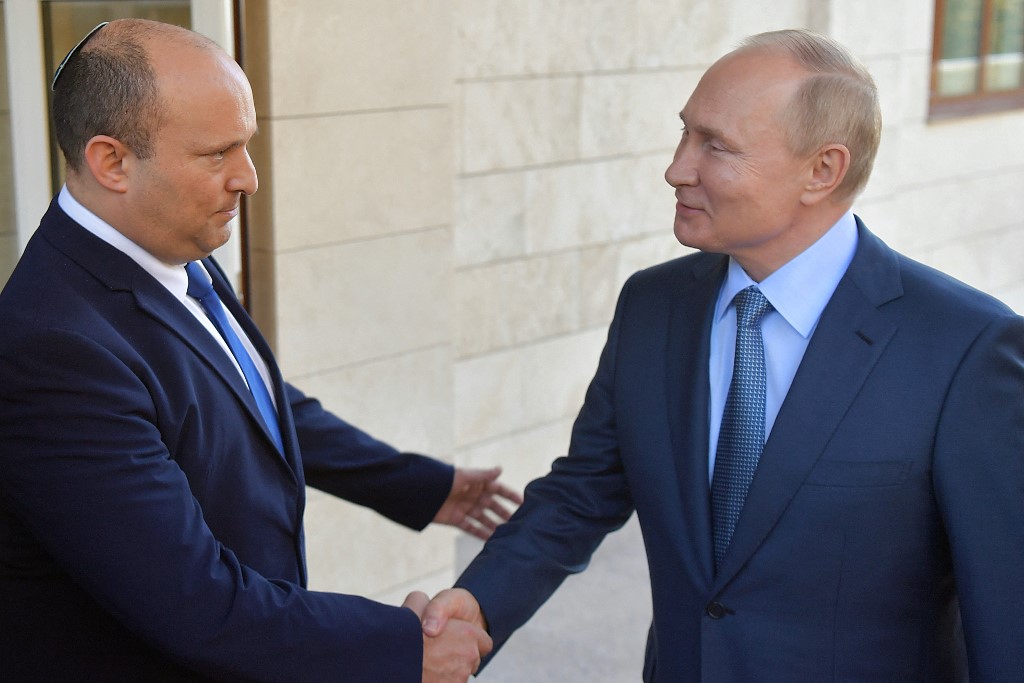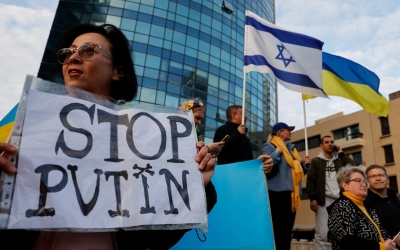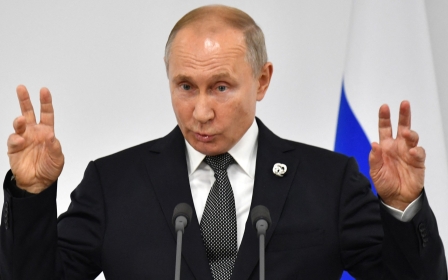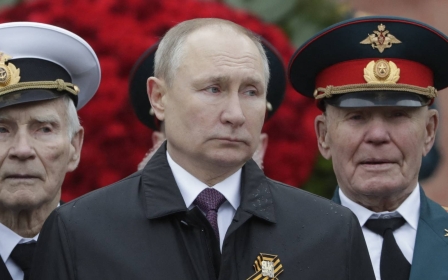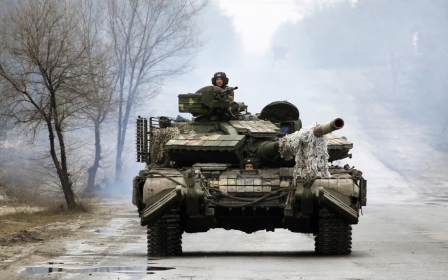Russia-Ukraine war: Israel's tricky balancing act
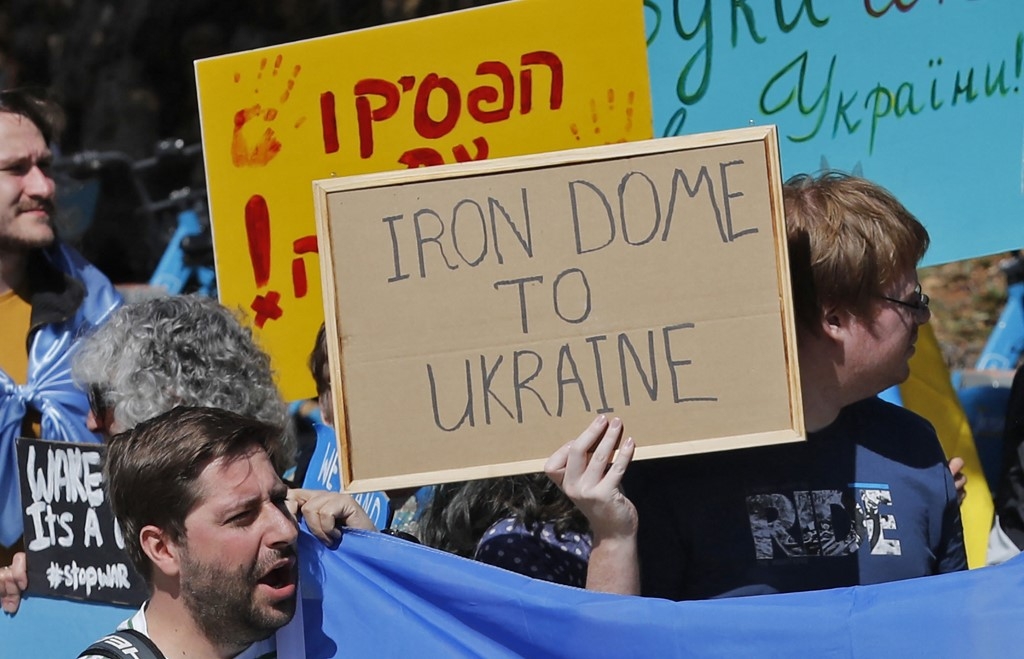
The Russia-Ukraine war is forcing Israel to walk a delicate tightrope. Ukraine is a significant economic partner for Israel, both in the agricultural and tech sectors, and it is also home to tens of thousands of Jews.
Both countries are members of the western sociopolitical sphere, and Ukraine has indicated a willingness to recognise Jerusalem as Israel’s capital, despite the fact that the city has an occupied status according to the UN, following in Washington’s controversial footsteps.
But Russia has been a pivotal partner for Israel in Syria, with regards to Israeli air strikes against Iranian and allied targets. In addition, many Russian Jews in Israel maintain their Russian ties and heritage, as highlighted by Russian President Vladimir Putin in a 2009 meeting with then-Israeli Foreign Minister Avigdor Lieberman: “I am glad that people from the Soviet Union built such brilliant political careers in Israel. This is something that unites us in a way that is unlike with any other country.”
From Russia's perspective, it may be more beneficial for Israel to become an intermediary between Moscow and Washington
Israel has thus been careful in its response to the Russia-Ukraine war. It has followed a three-way strategy in its diplomatic efforts.
Last week, Israeli Foreign Minister Yair Lapid condemned Russia’s assault on Ukraine and reportedly warned cabinet ministers not to help Russian Jewish oligarchs targeted by international sanctions. But Israeli Prime Minister Naftali Bennett has been more measured in his comments, expressing empathy towards Ukrainians.
New MEE newsletter: Jerusalem Dispatch
Sign up to get the latest insights and analysis on Israel-Palestine, alongside Turkey Unpacked and other MEE newsletters
Israel also refused to join 87 countries in backing a US-led resolution to condemn Russia’s invasion of Ukraine at the UN Security Council, but voted in favour of a General Assembly resolution condemning Russian aggression on 28 February.
Intermediary role
On the military front, Israel reportedly stopped the US from transferring the Iron Dome defence system to Ukraine last year, in an effort to preserve Israel’s ties with Russia. Tel Aviv has also turned down Kyiv’s more recent requests for military aid.
At the same time, Israel is positioning itself as a potential mediator between the two warring states - a role Tel Aviv has been eager to play for years. Last week, Ukrainian President Volodymyr Zelensky welcomed the idea of Israeli mediation in the current conflict, helping to explain why Tel Aviv has aimed to maintain neutrality - but Putin was reportedly not keen on the idea. Zelensky has also proposed holding negotiations in Istanbul, Warsaw, Bratislava, Budapest or Baku.
From Russia’s perspective, it may be more beneficial for Israel to become an intermediary between Moscow and Washington, rather than Moscow and Kyiv. Russia could utilise the US-Israeli alliance to make demands of Washington, particularly in light of the current conflict.
At the same time, Russia may also take steps to corner Israel in the energy arena. Russia has a strategic military position in the Eastern Mediterranean, with a naval base in Tartus, Syria, and Khmeimim Air Base in Latakia, Syria - facilities that are also key for its power projection in the Black Sea region. It is not surprising that on the day Russia launched its assault on Ukraine, it reinforced its naval presence in the Mediterranean.
Consequences in Syria
It is safe to assume that the longer the operation takes place, the more Russia will be vulnerable, as sanctions could be deepened and widened, and military investments with Moscow reconsidered. But despite Tel Aviv’s cautious approach and public remarks supporting Ukraine, it would be tough for Israel to join the countries imposing sanctions on Russia.
The longer the war continues, the more Russia’s focus will be fixed on Ukraine, which could mean reducing its military investments in countries such as Syria and Libya. In Syria, Russia and Israel have a coordination mechanism that allows Israel to target Iran and its allies. Losing this advantage would be of great concern to Israel.
At the UN Security Council’s February meeting, Russia raised an objection to Israel’s occupation of the Golan Heights. This could be translated as a warning that if Israel comes out strongly against the Russian invasion of Ukraine, there could be consequences for its campaign in Syria.
At the same time, a decreased Russian presence in Syria could mean less support from Moscow for Iran-backed militias and the Syrian regime, giving more operational freedom to Israel. But this could also mean more missiles fired from Lebanon and Syria towards Israel, embroiling Israel in a deeper conflict on that front. So far, the relationship between Tel Aviv and Moscow in this arena has worked to Israel’s advantage.
The views expressed in this article belong to the author and do not necessarily reflect the editorial policy of Middle East Eye.
Middle East Eye delivers independent and unrivalled coverage and analysis of the Middle East, North Africa and beyond. To learn more about republishing this content and the associated fees, please fill out this form. More about MEE can be found here.


